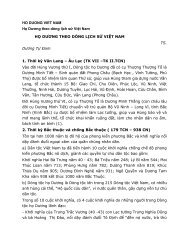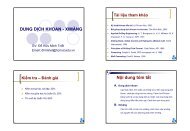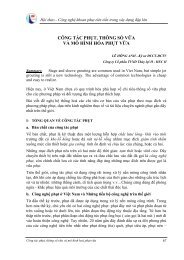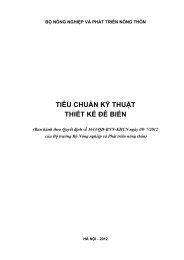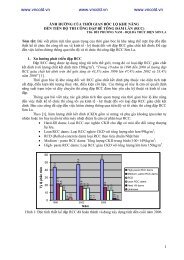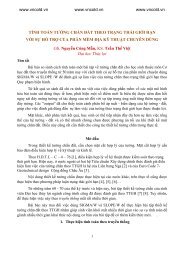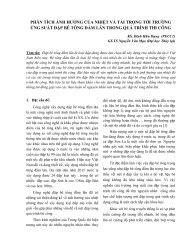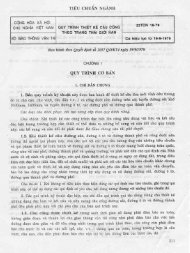Civil Engineering Project Management (4th Edition)
You also want an ePaper? Increase the reach of your titles
YUMPU automatically turns print PDFs into web optimized ePapers that Google loves.
e avoided because they can provide opportunities which undermine the<br />
independent nature of competitive bids. However, visits to inspect sites will<br />
need to be paid by tenderers. If such site visits are made in the company of the<br />
employer’s engineer or one of his assistants, the engineer must be careful to<br />
provide only factual answers to queries raised. Should this provide a visiting<br />
tenderer with additional information this will need to be sent out to all tenderers.<br />
It is better if the tenderer visiting is accompanied, if need be, by a<br />
guide who is not directly connected with the contract, any queries being noted<br />
and dealt with formally after the visit.<br />
6.6 Considering tenders<br />
Opening tenders<br />
Tendering 71<br />
Arrangements for return of tenders should be set out in the ‘Instructions to<br />
Tenderers’, giving both the place and latest time for receipt. Tenderers need<br />
to use secure means of delivery, and should receive a signed confirmation of<br />
delivery. It is usual to require tenders to be returned in sealed envelopes, marked<br />
only with the contract name and no means of identifying the name of the tenderer.<br />
Arrangements should be made to mark each tender envelope with the<br />
date and time of receipt, and for the safe storage of same until opening is authorized.<br />
Documents received after the closing time should be similarly marked and<br />
held unopened, until the employer decides whether they can be considered<br />
valid or not. Obviously common sense must be exercised; the employer will not<br />
wish to have a genuine bid invalidated by conveyance mishaps outside the<br />
control of a tenderer, such as a postal strike, or aircraft delayed. Once tenders<br />
are opened, no late delivery of a tender can be considered.<br />
Tenders for large projects are sometimes opened at a public ceremony, the<br />
name and total tendered price of each tenderer being announced. This has the<br />
advantage that everything is ‘above board’ so that practices which could distort<br />
price competition are precluded. Also, contractors gain immediate knowledge<br />
as to how they stand with respect to getting the contract. In other cases, such as<br />
in local government, the practice is for tenders to be opened by a senior official<br />
in the presence of the chairman of the appropriate committee and others<br />
according to the standing rules of the authority. A record is usually made of the<br />
tendered prices as opened and signed by one or more of those present.<br />
The tenders when opened are then usually passed to the employer’s engineer<br />
for examination. The first step is to mark all documents with the name of<br />
the tenderer and list them. This list should be given an independent check so<br />
as to be certain that, if a tenderer says one of his documents has been missed,<br />
the employer’s officials can show it was not received. Once the list has been<br />
compiled, any document not returned by a contractor that should have been<br />
returned, is noted.




